Best movies & TV Shows like Löwenzahn
A unique, carefully handpicked, selection of the best movies like Löwenzahn . If you liked Löwenzahn then you may also like: Voyage of Time: Life's Journey, After Life: The Strange Science of Decay, 3-2-1 Contact, Fat Albert and the Cosby Kids, Modern Marvels and many more popular movies featured on this list. You can further filter the list even more or get a random selection from the list of similar movies, to make your selection even easier.
Each 30 minute episode is dedicated to a separate issue or theme and consists mainly of related short featurettes, which explain, explore and educate how things of everyday life and even complex systems work. It spans a wide variety of topics from technology and industry to something as mundane as how the postal service works.
You may filter the list of movies on this page for a more refined, personalized selection of movies.
Still not sure what to watch click the recommend buttun below to get a movie recommendation selected from all the movies on this list
After Life: The Strange Science of Decay
Ever wondered what would happen in your own home if you were taken away, and everything inside was left to rot? The answer is revealed in this fascinating programme, which explores the strange and surprising science of decay. For two months in summer 2011, a glass box containing a typical kitchen and garden was left to rot in full public view within Edinburgh Zoo. In this resulting documentary, presenter Dr George McGavin and his team use time-lapse cameras and specialist photography to capture the extraordinary way in which moulds, microbes and insects are able to break down our everyday things and allow new life to emerge from old. Decay is something that many of us are repulsed by. But as the programme shows, it's a process that's vital in nature. And seen in close up, it has an unexpected and sometimes mesmerising beauty.
3-2-1 Contact
3-2-1 Contact is an American science educational television show that aired on PBS from 1980 to 1988, and an adjoining children's magazine. The show, a production of the Children's Television Workshop, teaches scientific principles and their applications. Dr. Edward G. Atkins, who was responsible for much of the scientific content of the show, felt that the TV program wouldn't replace a classroom but would open the viewers to ask questions about the scientific purpose of things.
Fat Albert and the Cosby Kids
Fat Albert and the Cosby Kids is an animated series created, produced, and hosted by comedian Bill Cosby, who also lent his voice to a number of characters, including Fat Albert himself. Filmation was the production company for the series. The show premiered in 1972 and ran until 1985. The show, based on Cosby's remembrances of his childhood gang, centered on Albert, and his friends. The show always had an educational lesson emphasized by Cosby's live-action segments, and in early episodes the gang would usually gather in their North Philadelphia junkyard to play a rock song on their cobbled-together instruments at the end of the show.
Modern Marvels
HISTORY’s longest-running series moves to H2. Modern Marvels celebrates the ingenuity, invention and imagination found in the world around us. From commonplace items like ink and coffee to architectural masterpieces and engineering disasters, the hit series goes beyond the basics to provide insight and history into things we wonder about and that impact our lives. This series tells fascinating stories of the doers, the dreamers and sometime-schemers that create everyday items, technological breakthroughs and manmade wonders. The hit series goes deep to explore the leading edge of human inspiration and ambition.
Watch Mr. Wizard
Watch Mr. Wizard was an American television program for children that demonstrated the science behind ordinary things. The show's creator and on-air host was Don Herbert. Marcel LaFollette said of the program, "It enjoyed consistent praise, awards, and high ratings throughout its history. At its peak, Watch Mr. Wizard drew audiences in the millions, but its impact was far wider. By 1956, it had prompted the establishment of more than five thousand Mr. Wizard science clubs, with an estimated membership greater than one hundred thousand." It was briefly revived in 1971, and then in the 1980s was a program on the Nickelodeon children's television network as Mr. Wizard's World.
The Nature of Things
The Nature of Things is a Canadian television series of documentary programs. It debuted on CBC Television on November 6, 1960. Many of the programs document nature and the effect that humans have on it. The program was one of the first to explore environmental issues, such as clear-cut logging. The series is named after an epic poem by Roman philosopher Lucretius: "Dē Rērum Nātūrā" — On the Nature of Things.
The Price Is Right
"Come on down!" The Price Is Right features a wide variety of games and contests with the same basic challenge: Guess the prices of everyday (or not-quite-everyday) retail items.
Tales from the Darkside
Tales from the Darkside is an anthology horror TV series created by George A. Romero, each episode was an individual short story that ended with a plot twist. The series' episodes spanned the genres of horror, science fiction, and fantasy, and some episodes featured elements of black comedy or more lighthearted themes.
Variety Studio: Actors on Actors
PBS SoCal and Variety take you inside the biggest movies and T.V. shows of the past year through candid conversations with today's hottest actors. Hosted by Variety Film Awards Editor Clayton Davis and Variety Chief Correspondent Elizabeth Wagmeister, each episode brings together pairs of actors engaging in intimate one-on-one discussions about their craft and work.
Saturday Night Live
A late-night live television sketch comedy and variety show created by Lorne Michaels. The show's comedy sketches, which parody contemporary culture and politics, are performed by a large and varying cast of repertory and newer cast members. Each episode is hosted by a celebrity guest, who usually delivers an opening monologue and performs in sketches with the cast, and features performances by a musical guest.
Newton's Apple
Newton's Apple is an American educational television program produced and developed by KTCA, and distributed to PBS stations in the United States that ran from 1983 to 1999. The show's title is based on the rumor of Isaac Newton sitting under a tree and an apple falling near him—or, more popularly, on his head—prompting him to ponder what makes things fall, leading to the development of his theory of gravitation. The show was produced by Twin Cities Public Television. For most of the run, the show's theme song was Ruckzuck by Kraftwerk, later remixed by Absolute Music. Later episodes of the show featured an original song. An occasional short feature appeared called "Science of the Rich and Famous" in which celebrities appeared to explain a science principle.
Sexual Secrets
Sexual Secrets is a documentary television series which explores various concepts of human sexuality shown on Slice in Canada. Sexual Secrets is the only television series that combines equal measures of fun, down-to-earth talk, and need-to-know information to present a highly entertaining look at that most primordial of human urges - sex. Over the course of the hour-long episodes, we examine the latest work by scientists and sex experts from around the globe as they investigate a broad spectrum of sexual topics.
Wonders of the Solar System
In this spellbinding series, Professor Brian Cox visits the most extreme locations on Earth to explain how the laws of physics carved natural wonders across the solar system.
Into the Universe with Stephen Hawking
Hawking gives us the ultimate guide to the universe, a ripping yarn based on real science, spanning the whole of space and time -- from the nature of the universe itself, to the chances of alien life, and the real possibility of time travel.
Evolve
Evolve is a 2008 documentary television series on History. The series premiere, "Eyes", was nominated for an Emmy for Outstanding Science, Technology and Nature Programming. Each episode attempts to explain the evolutionary origins of a particular trait of living creatures: for example, Tyrannosaurus Rex's 13-inch teeth, the gecko's "Velcro-like" toe pads, and the bald eagle's "telescopic" vision capable of spotting a hare a mile away.
Wonders of the Universe
Professor Brian Cox reveals how the fundamental scientific principles and laws explain not only the story of the universe but also answer mankind's greatest questions.
Karambolage
Karambolage is a television series broadcast Sunday evenings at 7:30 p.m. on the Franco-German television channel arte. Each episode is roughly 12 minutes long, and is usually broken up into three or four segments. The title is the German version of the French loan word carambolage, which means "carom" or "collision". As such, Karambolage aims to explore the differences, similarities, and overlaps of French and German culture through anecdotes, household objects that are common in one country, yet virtually unknown in the other, as well as brief, tongue-in-cheek lectures by etymologists, historians, and the like. The anecdotal segments are often accompanied by simple, stylized animation. In recent years, the makers of the series have also included segments dedicated to the experiences of members of the larger immigrant populations of both countries; i.e. the Turks in Germany and the West- and North Africans in France. At the end of each episode, viewers can participate in a sort of guessing game, in which a thirty second long video recording of a public place is shown. Participants are then asked to determine whether the shot was recorded in Germany or France based on the presence of a key detail, such as road signs or businesses unique to that country. Anyone who can determine the country and name the key detail can then mail the solution to arte by postcard or submit it on the station's website. From the correct solutions, ten winners are randomly pulled and receive a small prize.
The Secrets of Everything
No question about life or the universe is too random or silly for science adventurer Greg Foot. Using simple demonstrations, sophisticated technology and extreme stunts, Greg explores the science behind our everyday world.
Educating …
Educating … is a British documentary television programme produced by Twofour for Channel 4 that has run since 2011. It uses a fly on the wall format to show the everyday lives of the staff and students of various secondary schools around the UK; interspersed with interviews of those involved and featuring narration from the director and interviewer, David Clews. Filmed on location at schools in Harlow, Dewsbury, Walthamstow, Cardiff and Salford respectively, there have been six series to date: Educating Essex (2011), Educating Yorkshire (2013), Educating the East End (2014), Educating Cardiff (2015) and Educating Greater Manchester 1 & 2 (2017 and 2020).
Creature Comforts
Based on the original Academy Award-winning short film of the same name, the stop-motion animated series employs a unique format that culls excerpts from real person interviews and places them in the mouths of a wide variety of animated animals to produce humorous, charming and insightful commentaries on everyday life.
Begin Japanology
BEGIN Japanology invites you into the world of Japanese culture, both traditional and modern, explaining how traditions evolved and the part they still play today in people's everyday lives.
Fun to Imagine
Richard Feynman, theoretical physicist, enjoys thinking aloud about the adventures science can offer. Back in 1983, the BBC aired Fun to Imagine, a television series hosted by Richard Feynman that used physics to explain how the everyday world works – “why rubber bands are stretchy, why tennis balls can’t bounce forever, and what you’re really seeing when you look in the mirror.” In case you’re not familiar with him, Feynman was a Nobel prize-winning physicist who had a gift for many things, including popularizing science and particularly physics.
Outrageous Acts of Science
Scientists and amateurs conduct experiments and post their exploits online. Each episode counts down 20 popular Internet videos and explains the science behind them.
PBS News Weekend
A summary of the day’s national and international news, using renowned experts to provide in-depth analysis. Each weekend broadcast contains original, in-depth field reporting on topics including education, healthcare, the economy, energy, science and technology, religion, finance and the arts.
StarTalk with Neil deGrasse Tyson
Host Neil deGrasse Tyson brings together celebrities, scientists and comedians to explore a variety of cosmic topics and collide pop culture with science in a way that late-night television has never seen before. Weekly topics range from popular science fiction, space travel, extraterrestrial life, the Big Bang, to the future of Earth and the environment. Tyson is an astrophysicist with a gifted ability to connect with everyone, inspiring us all to to "keep looking up."
Life in the Air
Examining the extraordinary physiology of animals who launch themselves into the air - whether winged or wingless; bearing feathers, fur, or scales; by day or night. Shot both in the field and on controlled sets, the series reveals the minute details of wing beats and the science of how a tiny Leaf Hopper pulls 500G on takeoff. Each episode concludes with a behind-the-scenes view of how it was made.
One Strange Rock
A mind-bending, thrilling journey exploring the fragility and wonder of planet Earth, one of the most peculiar, unique places in the entire universe, brought to life by the only people to have left it behind – the world’s most well known and leading astronauts.
Sex, Explained
From the biology of attraction to the history of birth control, explore the ins and outs of sex in this entertaining and enlightening series.
A Perfect Planet
A unique fusion of blue chip natural history and earth science that explains how our living planet operates. This five-part series shows how the forces of nature drive, shape and support Earth’s great diversity of wildlife.
Wildest Europe
Wildest Europe reveals the incredible beauty and diversity of wildlife in Europe’s major natural habitats. The result is a surprising and wonderful journey of life in many dramatic and varied landscapes. No other continent has such a variety of landscapes and wildlife crammed into so little space. Sculpted by millions of years of rainfall carving out caves, rivers, islands and coastline of this diverse and epic landmass we explore the major waterways that provide home to a myriad of life forms, as well as the forests and woodlands and the grasslands, marshlands and plains. Europe’s habitats also span from sea level to mountain top, and once again wildlife has adapted to thrive in both places. Wildest Europe is a landmark series that explores this great continent of extremes…
Crash Course Botany
Over the course of 15 episodes, we’re going to learn about botany—the study of plants. Alexis Nikole Nelson will teach you about how plants evolved, how they function, and just how vital they are to human societies and all of life on Earth. This content is based on an introductory university-level curriculum. By the end of this course, you should be able to: *Describe the evolutionary history of plants *List and describe fundamental anatomical and morphological characteristics of plants *Understand what plant hormones are and how they work *Explain what roles plants play in ecosystems and why they are important *Understand how plant genes play an important role in the diversity of plants we see on Earth *Understand why plants are important, and how botanical knowledge can be useful in everyday life



































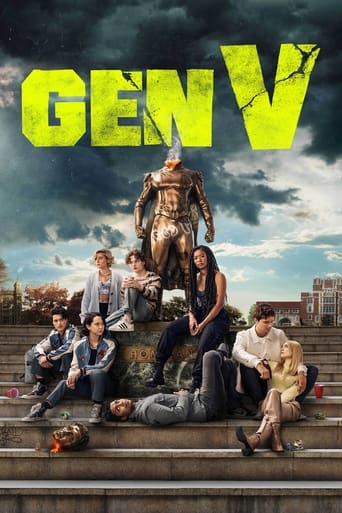
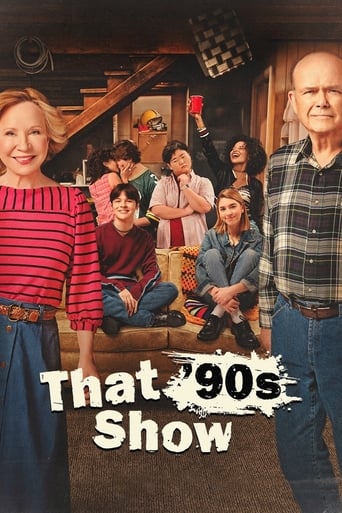
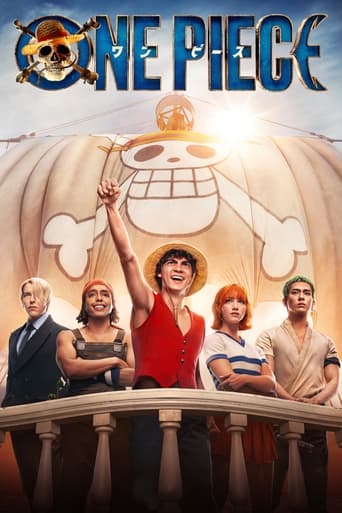
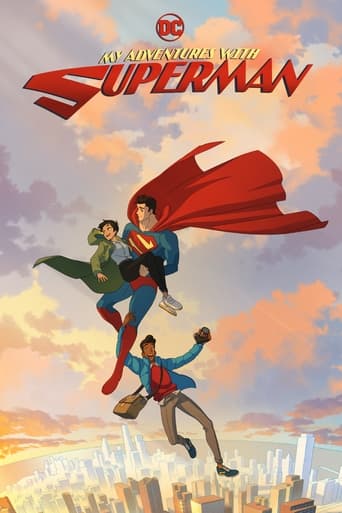
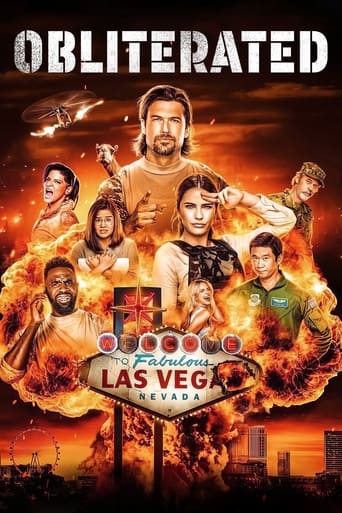
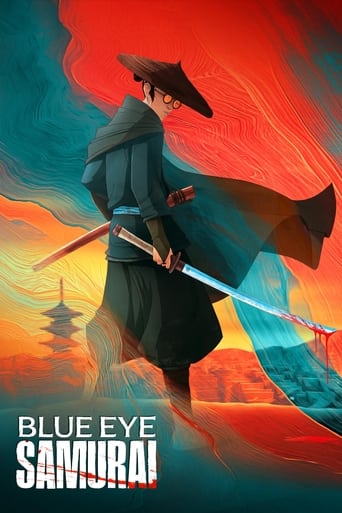
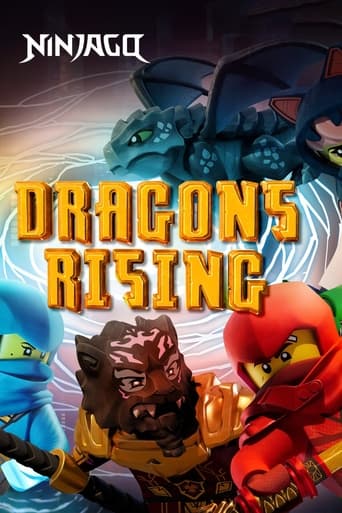
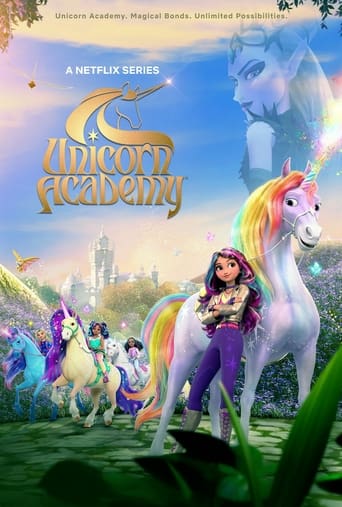
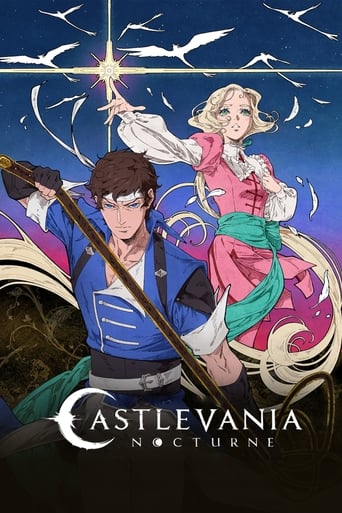



Voyage of Time: Life's Journey
A celebration of the universe, displaying the whole of time, from its start to its final collapse. This film examines all that occurred to prepare the world that stands before us now: science and spirit, birth and death, the grand cosmos and the minute life systems of our planet. (Wide release version with narration by Cate Blanchett.)